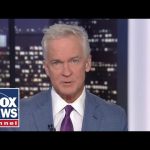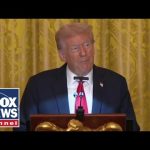Recently, the streets of America were filled with voices clamoring for attention. Thousands gathered over the weekend for the “No Kings” protests, aiming to express dissatisfaction with President Trump and what they view as an encroaching tyranny. While the event was largely peaceful, it left many scratching their heads about the message behind such a grand display. Was the protest a celebration of freedom or an indictment of our democratic system? Observers could clearly see there were no kings in sight—but maybe that wasn’t the point.
Amid what was heralded as a peaceful protest, commentators noted that the very existence of such gatherings demonstrated that Americans can express their opinions without fear of authoritarian rule. Supporters of Trump pointed out the irony of this situation; although the media painted the protests in a rosy hue, no one was calling for the police to be mobilized against the demonstrators. Without the shadow of a king looming over them, they were free to voice their grievances, and many felt this paradox deserved recognition. It has become quite apparent that democracy allows dissenting voices, even if some of those voices seem to yearn for something different.
As the cameras honed in on the spectacle, one could find moments that might make a person chuckle unintentionally. For example, the occurrence of a teacher mimicking a violent gesture during the protests led many to question the underlying tone of the evening. A baffling assortment of signs also emerged, some humorously cryptic, like “Free Luigi!” The display illustrated a curious concoction of motivations swirling within the crowd, from genuine outrage to bizarre antics. It seemed like everyone was vying for attention, hoping to be the next viral sensation.
Despite the peaceful nature of the events, the underlying currents of hostility surfaced. Protesters made descents into reckless rhetoric, with calls for violence aimed at law enforcement. While those same participants may have preferred to be seen as advocates for liberty, their statements bordered on a call for chaos. Such disconnect raises concerns about the state of discourse in America. Can one truly advocate for peace while simultaneously promoting violence against public officials?
On the other side of the issue, political leaders such as Senators Bernie Sanders and Chris Murphy found themselves sharing the stage with controversial figures at the protest, raising some eyebrows in the process. While they sought to align with a cause often portrayed as noble, the alliance with those who have expressed more extreme views prompted discussions about the risks associated with radical rhetoric. As America braces itself for another election cycle, the division within the populace only seems to deepen, making for a perplexing political landscape.
In a nutshell, the “No Kings” protests illustrated a fascinating tale of freedom, confusion, and a pinch of comedic absurdity. Whether it is through the cacophony of chants or the whimsical efforts to draw attention, it is vital to assess what is genuinely happening in the streets. It appears apparent that while many wish to voice their discontent, they must also acknowledge the very freedoms that allow them to do so—freedoms that won’t be vanquished by kingly decrees but may very well be challenged by the harsh realities of a divisive political environment.




